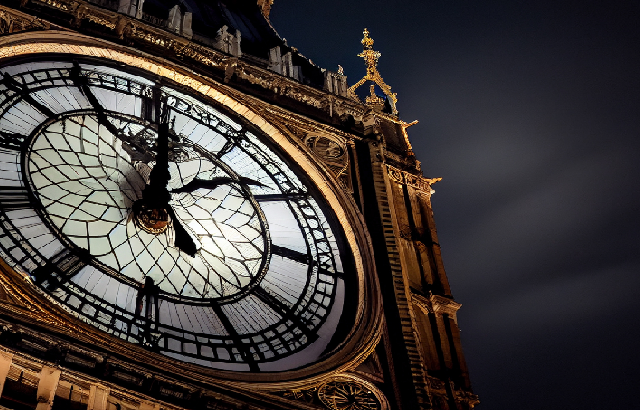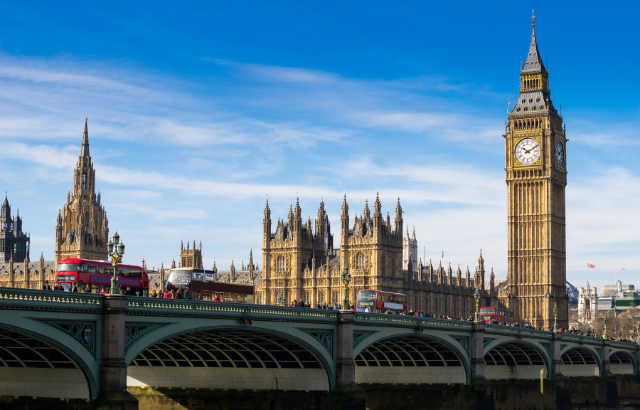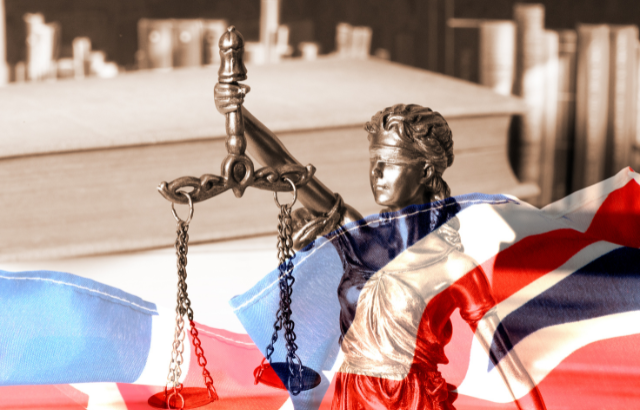Queen Mary experts react to election results
Experts from Queen Mary give their initial reactions to the election results

Professor Philip Cowley
Professor of Politics
Can the Conservatives come back? There’s nothing inevitable any of the parties surviving but people have been writing off one or more of the main parties ever since the early 1960s, when it was claimed demographics meant Labour could never win again, only for them to do so in 1964.
After the Conservatives won their fourth consecutive victory in 1992, there was again lots of talk about how Britain was now a one-party state, only for Labour to go on to win their greatest ever landslide five years later. During the Blair and Brown years we were told the Conservatives could never win again, but they did. Indeed, you don’t even have to go back that far. Just five years ago, in 2019, people claimed Labour had lost some parts of the country forever and it looked as if the Conservatives were set for decades of rule – and instead Labour have bounced straight back. What the electorate giveth, it can take away. The Conservatives discovered that last night. Labour will too, in time.
Dr Daniel Gover
Senior Lecturer in British Politics
These results will have a major effect on how the new parliament works. On the government benches, Labour now has a majority of over 170 – the largest since Tony Blair. This should give it the ability to pass its manifesto pledges, although that does not mean it will be entirely plain sailing. Labour MPs, particularly those with tight electoral majorities to defend, are likely to put pressure on ministers behind the scenes. Whether, and how quickly, this turns into open backbench dissent will depend partly on the effectiveness of Labour’s party management operation.
There will be all change too on the opposition benches. The Conservatives, reduced to just 121 MPs, will have their work cut out to provide proper scrutiny of the new government. They will need to supply not only a full slate of opposition shadow ministers, but also populate parliament’s various scrutiny committees. Even more dramatically, the Scottish National Party – dominant in Scotland since 2015 – will now lose its third-party privileges. This platform will instead shift back to the Liberal Democrats, including the right to ask weekly high-profile questions at PMQs. Meanwhile, the small but strengthened contingents from Reform, the Greens, Independents and others will work hard to make their voices heard.
Dr Tony McNulty
Teaching Fellow
Labour has clearly secured a mandate to govern and a healthy majority of 174, but it will bring stresses and strains – both internally in the Parliamentary Labour Party and in terms of government relations with Parliament and the function of scrutiny. It will need to deliver and deliver quickly.
They say that governments lose elections rather than oppositions winning them and this was an anti-government election. People wanted change but it was also an anti-politics election. People craved competent government, but there are signs that incumbents in much of England and Wales, of all parties, suffered a loss of support.Labour won so well because it understood that the key to the First Past-The-Post electoral system is an efficient distribution of votes. By targeting its efforts in such a clearly strategic and efficient fashion, Labour optimised its vote – it gained votes where it needed to and lost them where it could afford to – apart from the losses to independents and a Green. This has a downside though and on paper only a 6% swing to the Tories next time means Labour loses its majority.
The key takeaway is the extent to which the electorate fragmented. This was the lowest seat share for the two main parties since 1923 and the lowest two-party vote share ever. This means, for example, only one Conservative secured more than 50% of the vote and that new incumbents have on average much lower majorities and are potentially vulnerable given how many smaller parties can siphon off support.
In short there is a striking contradiction – Labour has a large majority and ability to get on with its mandate to govern, but with the majority comes and end to alibis and a really need for delivery and action. The in-tray is stacked with very real problems, domestic and international, and this majority is really quite precarious. Labour can consolidate its position through this delivery or suffer the consequences as re-election is not an automatic given the astonishingly fragmented nature of the electorate.
Dr Colm Murphy
Lecturer in British Politics
With this enormous parliamentary majority, the Labour Party now has a historic opportunity to reshape the United Kingdom. Yet it also faces huge challenges, from long NHS waiting lists to overflowing prisons, from bankrupt councils to stagnating real wages, and from wars in Eurasia to the climate emergency.
As such, Labour will need urgently to address unanswered questions about its macroeconomic policy. How will the government revive the NHS, rescue public services, and continue to boost defence spending, while also sticking to its fiscal rules? How will it fulfil its hugely ambitious pledge of 'clean power' by 2030 when the promised capital investment has been slashed? Will it revisit its election omerta on higher taxes? Will it use private sector money -- and if so on what terms? If it wants to rely on growth, how brave will it be on its growth policies (increased housebuilding and green infrastructure) in the face of 'nimby' backlash? As we approach the first spending review and Budget, these questions will be asked of Rachel Reeves with increasing insistence.
Dr Javier Sajuria
Reader in Comparative Politics
The gap between vote share and seats is not a flaw, but a feature of the FPTP system. The UK has an increasingly fragmented party system, but the electoral system does its best to mask it. That said, people do not vote in isolation, they do so in the context of a system that rewards tactical voting and strategic campaigning. Labour did very well in managing that system through brutal strategic campaigning.
The other party that did very well in terms of strategic campaigning were the Liberal Democrats. They were effective in taking advantage of the Conservative decline and the surge of tactical voting.
A seat majority of 174 means that there is a lot of space for passing legislation, but also nowhere to hide when it comes to policy failures. The new government has attempted to under promise to over deliver, but that cannot be a campaign slogan anymore. In hist first speech as PM, Starmer was clear to emphasise stability, moderation, and trust as his key drivers. That is a refreshing change from the turmoil of the last five years.
There is a lot of debate about the rise of the far-right considering the vote share for Reform. That is, in my view, a wrong way of putting it. The far-right rose back in 2019 with the arrival of Boris Johnson and his unlikely coalition within the Conservatives. They have been in power since then, with the Conservative Party drifting more and more into the far-right. The main difference is that voters have moved away from the Tories in this election, thanks to the popularity of Nigel Farage. The four Reform seats should be seen in combination of a number of key figures within the Conservative party that retained their seats, such as Kemi Badenoch.
Dr Elizabeth Simon
Postdoctoral Researcher in British Politics
There is no doubt that election night was a good one for Labour. They not only secured a large majority but did so by winning almost as many seats as they did in their 1997 landslide (412 in 2024 compared to 418 in 1997).
Despite this, the story of the election seems, in many ways, to be one of a Conservative loss rather than a Labour win. Turnout was down, the Labour vote share was relatively low and barely increased from 2019, except in Scotland – all facts which suggest Labour’s victory was not driven by widespread enthusiasm about the Party, its leadership, and its policies.
Rather, voters’ dissatisfaction with the Conservative’s record over 14 years in government, their concerns over the management of the economy and the NHS, and the sleaze associated with the Party in recent years (from ‘partygate’ to the betting scandal), all contributed to a feeling that politics was ‘broken’ and something drastic needed to be done to ‘fix it’. Because of this, the Conservatives lost loyal voters to other parties and faced a surge in tactical voting, explicitly aimed to get the Party out of government. All this culminated in the Conservatives suffering their worst ever election defeat, losing 251 seats.
Dr James Strong
Senior Lecturer in British Politics and Foreign Policy
The size of Labour's majority, despite a relatively low vote share, reflects both the challenge and the opportunity facing the new government.
On the one hand, the new government needs to deliver. People need to feel better off five years from now, otherwise that large majority might melt away quite quickly. On the other hand, it will face few political constraints. Any policy supported by most Labour MPs will pass through parliament.
Where does all this lead us? Keir Starmer will have to be bold if he is to achieve his goal of restoring the public's trust in politics...and if he is willing to be bold, he will be powerful enough to deliver.
Related items

10 December 2024

9 December 2024

6 December 2024